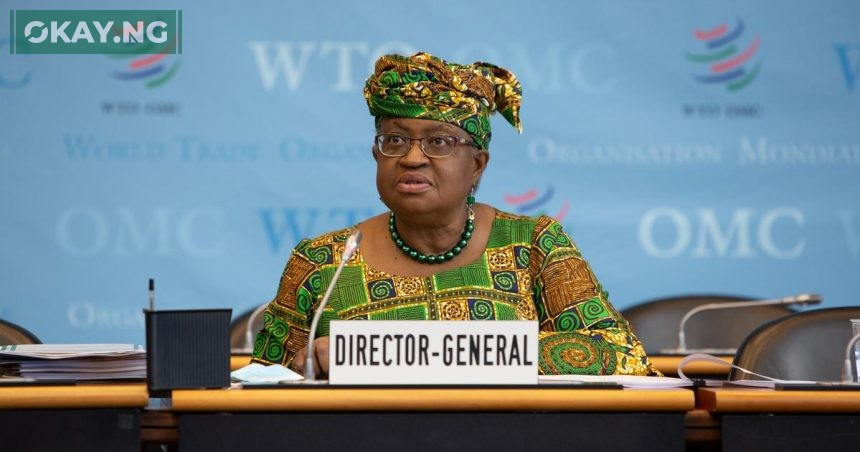Escalating trade tensions between the United States and China could trigger an alarming 80% collapse in merchandise trade between the two economic giants, and potentially fracture the global economy, according to a stark warning issued by World Trade Organization (WTO) Director-General, Ngozi Okonjo-Iweala.
In a statement released recently, Okonjo-Iweala expressed deep concern over the “tit-for-tat” tariff measures, stating, “The escalating trade tensions between the United States and China pose a significant risk of a sharp contraction in bilateral trade. Our preliminary projections suggest that merchandise trade between these two economies could decrease by as much as 80%.”
This dramatic reduction, she emphasized, would have far-reaching consequences beyond the US and China. “This tit-for-tat approach between the world’s two largest economies — whose bilateral trade accounts for roughly 3% of global trade — carries wider implications that could severely damage the global economic outlook,” she explained.
The WTO’s primary worry centers on the potential “fragmentation of global trade.” Okonjo-Iweala cautioned, “A division of the global economy into two blocs could lead to a long-term reduction in global real GDP by nearly 7%.” This economic fallout would disproportionately affect developing nations, particularly the least developed countries, which heavily rely on open trade to foster growth.
Read Also: US Aid Freeze Cripples Global Health Programs, Warns WHO
The current trade dispute stems from recent tariff measures announced by the United States. Initially, President Donald Trump declared a 10% baseline tariff on all imports, followed by harsher duties for nations perceived as engaging in unfair trade practices. This move, which included a 14% tariff on Nigerian exports to the U.S., was intended to promote “economic independence” and reduce the U.S. trade deficit.
Following international condemnation, the U.S. suspended tariff hikes for most countries, but significantly increased tariffs on Chinese goods to 125%. China retaliated with 84% tariffs on U.S. imports, blacklisting American companies, and initiating regulatory investigations into U.S. businesses.
“Trade diversion remains an immediate and pressing threat, one that requires a coordinated global response,” Okonjo-Iweala stated. The WTO had previously projected a 1% decline in global merchandise trade volumes for 2025 due to these rising tensions.
Urging diplomacy, Okonjo-Iweala called upon WTO members to step in and de-escalate the dispute through multilateral engagement. “It is critical for the global community to work together to preserve the openness of the international trading system,” she emphasized. “WTO members have agency to protect the open, rules-based trading system. The WTO serves as a vital platform for dialogue. Resolving these issues within a cooperative framework is essential.”
The impact on developing nations, which are often the most vulnerable, is particularly concerning. The need for a cooperative resolution has never been more pressing.












